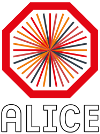Design and evaluation of data quality control methods for a very high bandwidth data acquisition and processing system in the future CERN/ALICE O2 framework
Modern physics experiments acquire very large amounts of data which require diligent quality monitoring and assessment. Data Quality Monitoring (DQM) systems help with identifying problems with particle detectors, data transfer and initial processing, where timely and accurate feedback is crucial. They are complemented with Quality Assurance (QA) systems, which allow to perform extensive assessment of the data quality before preparing them for physical analyses. This dissertation covers the new data Quality Control (QC) framework for the upgraded ALICE experiment at the CERN LHC. Starting from the year 2022, the QC system will accompany the main computing software during the acquisition of a 3.5 TB/s raw data stream, its compression on-the-fly and final quality assessment. Thus, it combines the functionalities of DQM and QA within a complete system. The QC framework is a highly parallel system, which can split computations among thousands of nodes. According to the reviewed literature, it is the first system of this kind to rely fully on message-passing and the actor model. In the dissertation, its general design and components are presented, giving the most detail to those which required novel solutions. A mathematical model of two available variants for multinode QC setups is proposed. The framework benchmarks results are presented and discussed.
